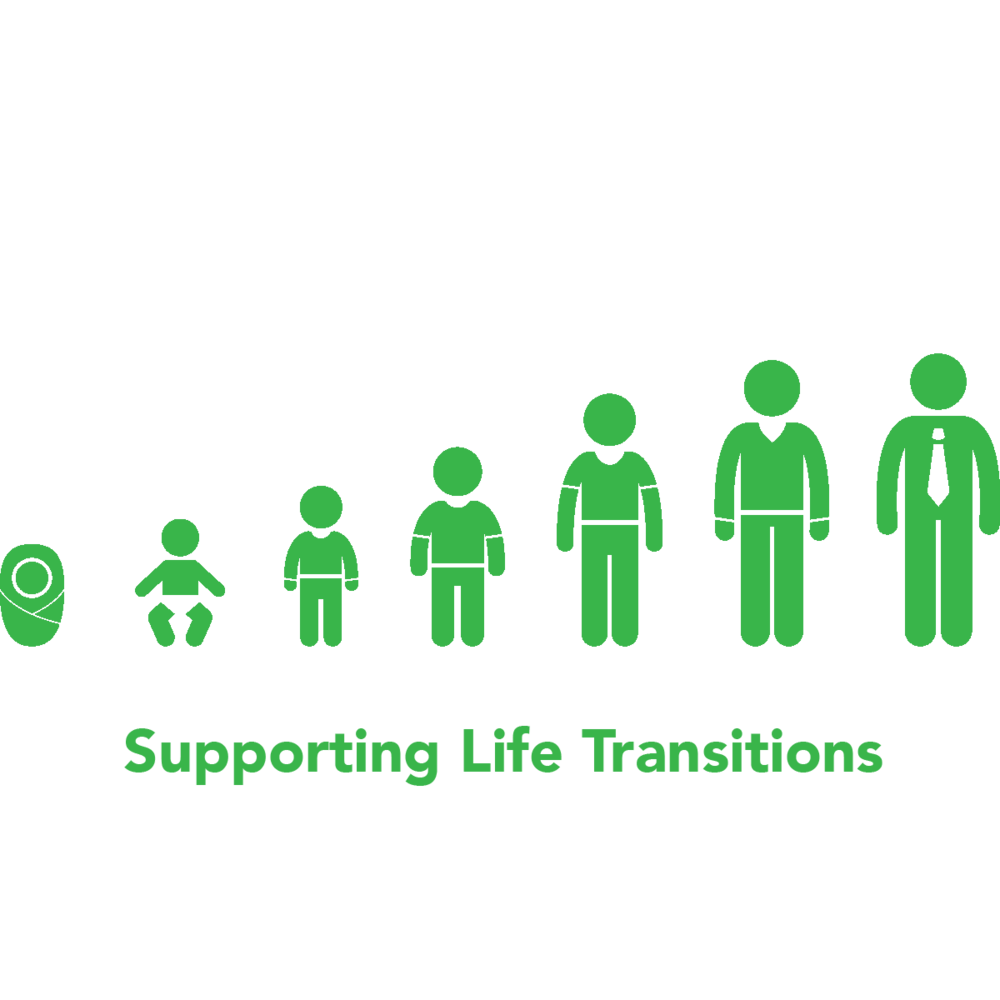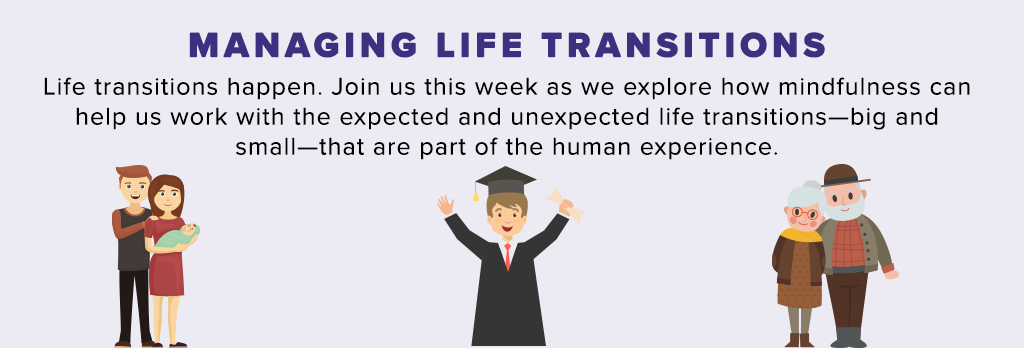We all go through different life transitions at different points in our lives. These changes can be stressful, but they can also have many benefits. In this blog post, we will explore the different types of life transitions, tips for adjusting to change, and therapies available for those who need help coping with change. We will also hear from experts in the field about their experiences with change and transition.
Contents
Understanding Change / Transitions

Change/transitions can be defined as “a process of moving from one place to another, or of changing something” (Cambridge Dictionary). They are often associated with a move to a new home, a change in job or career, the birth of a child, or the death of a loved one. However, any event or experience that is new or different can be a transition.
Adjustment Disorder
This disorder is a type of mental health condition that can occur when someone is struggling to cope with a life transition. It can cause symptoms such as anxiety, depression, problems sleeping, and difficulty concentrating.
Prevalence
Adjustment disorder is not a very common condition, but it is estimated that around one in every ten people will experience it at some point in their lives.
DSM And Its Criterion
The Diagnostic and Statistical Manual of Mental Disorders (DSM) is a guidebook that mental health professionals use to diagnose mental health conditions. It includes a criterion for adjustment disorder, which states that the symptoms must cause significant distress or impairment in social, occupational, or other important areas of functioning.
Types of Change And Transitions
There are many different types of change/transitions, and each one can be stressful in its way. Some common types of transitions include:
Personal Level
Getting married: This type of transition can be very stressful, especially if you are not prepared for all the changes that come with marriage (e.g., sharing a home, merging finances, having children).
Divorce or separation: This type of transition can be very stressful, especially if there are children involved. It can be difficult to adjust to life without your partner and to share custody of your children with someone else.
Having a baby: This type of transition can be both exciting and stressful. It can be exciting to welcome a new child into your home, but it can also be challenging to adjust to life with a newborn.
Death of a loved one: This type of transition can be very stressful, especially if the death was sudden or unexpected. It can be difficult to adjust to life without your loved one and to cope with the grief process.
Moving to a new home: This type of transition can be very stressful, especially if it is a long-distance move or you have to leave your friends and family behind.
Moving to a different country: This type of transition can be very stressful, especially if you do not know anyone in your new home country. It can be difficult to adjust to a new language and culture and to make new friends.
Having a major surgery: This type of transition can be very stressful, especially if you are not prepared for it. It can be difficult to adjust to life with an injury or illness and to cope with the recovery process.
Professional Level
Graduating from school: This type of transition can be both exciting and stressful. It can be exciting to finally have finished school, but it can also be challenging to start your career or find a job.
Starting university or college: This type of transition can be both exciting and stressful. It can be exciting to finally have finished school, but it can also be challenging to start your career or find a job.
Starting a new job: This type of transition can be stressful because it involves learning new skills, meeting new people, and adjusting to a new work schedule.
Changing jobs or careers: This type of transition can be stressful because it involves learning new skills, meeting new people, and adjusting to a new work schedule.
Losing a job: This type of transition can be very stressful, especially if you do not have another job lined up. It can be difficult to adjust to life without a regular income and to find new employment.
Adjusting To Change / Transitions

Most people will experience some stress when they are going through a major change/transition. The amount of stress that you feel will depend on how well you are prepared for the change, how much control you have over the situation, and your personality type.
The Holmes Rahe Stress Inventory
The Holmes-Rahe Life Stress Inventory is a questionnaire that was developed to measure the amount of stress that people experience from different life events. The questionnaire includes 43 items, and each item is rated on a scale from 0 (not at all stressful) to 100 (very stressful).
Benefits of Change / Transitions
Although change/transitions can be stressful, they can also be beneficial. Some of the benefits of change/transitions include:
Growth and development: Change/transitions can help you to grow and develop as a person. They can help you to learn new skills, meet new people, and experience new things.
Emotional growth: Change/transitions can help you to learn more about yourself and your emotions. They can help you to deal with difficult emotions such as sadness, anger, and fear.
Personal growth: Change/transitions can help you to become a stronger person. They can help you to cope with stress and adversity, and they can teach you how to better manage your life.
Coping With Change / Transitions

There are many different ways that you can cope with change/transitions. Some of the most common coping strategies include:
Skills You Need To Learn
There are many different skills that you can learn to help you cope better with change/transitions. Some of the most important skills include:
Self-awareness: This is the ability to be aware of your thoughts, feelings, and emotions. It is important to be self-aware when you are going through a change/transition because it can help you to understand how you are feeling and why you are reacting in certain ways.
Problem-solving skills: This is the ability to identify and solve problems. When you are going through a change/transition, you will likely encounter many different problems. It is important to have problem-solving skills so that you can effectively deal with these problems.
Coping mechanisms: This is the ability to use different strategies to deal with stress and adversity. When you are going through a change/transition, you will likely experience a lot of stress. It is important to have coping mechanisms so that you can healthily deal with this stress.
Self-help Tips
There are many things that you can do to help yourself manage stress and anxiety during a time of change/transition. Some of the most effective self-help tips include:
Talk to someone: Talking to someone can be a great way to deal with stress and anxiety. It can help you to release the emotions that you are feeling, and it can help you to get feedback and support from others.
Stay positive: It can be difficult to stay positive when you are going through a tough time, but it is important to maintain your optimism as much as possible. Positivity can help you to cope better with change.
Stay balanced: It is important to maintain a balance in your life during times of change. Try to continue doing the things that you enjoy and that make you happy.
Don’t dwell on the past: The past is the past and you can’t change it. focus on the present and the future and what you can do to make things better.
Give yourself time: It takes time to adjust to a new situation, so be patient and allow yourself the opportunity to adapt.
Take it one step at a time: Don’t try to do everything at once. Break the change down into smaller steps and take them one at a time.
Seek support: Don’t try to go through change alone. Seek out support from family, friends, and professionals.
Self-help Tools
There are many different self-help tools that you can use to help manage stress and anxiety during a time of change/transition. Some of the most common tools include:
Journaling: Journaling can be a great way to express your thoughts and feelings. It can also help you to track your progress and see how you are doing overtime.
Meditation: Meditation can be a great way to calm your mind and relax your body. It can help you to focus on the present moment and release stress and anxiety.
Exercise: Exercise is a great way to reduce stress and anxiety. It can help you to release tension and negative emotions, and it can help you to feel more relaxed and calm.
Yoga: Yoga is a form of exercise that combines breathing exercises with meditation and stretching poses. Yoga can be very helpful in reducing stress and anxiety.
Massage: Massage is another way to reduce stress and anxiety. It can help you to relax your muscles, release tension, and calm your mind.
Talking To Professional

If you are struggling to manage stress and anxiety during a time of change/transition, it may be helpful to talk to a professional. A professional can provide you with support and guidance, and they can help you to develop strategies to cope with the challenges that you are facing. There are many different types of professionals who can assist you, including psychologists, psychiatrists, and social workers.
Therapy For Change / Transition
If you are feeling overwhelmed by a change/transition, it may be helpful to seek therapy. Therapy can provide you with support and guidance during a difficult time. Many different types of therapy can be useful for managing change/transitions, including:
Cognitive-Behavioral Therapy (CBT): CBT is a type of therapy that focuses on the relationship between thoughts, feelings, and behaviors. It can help manage stress and anxiety during a time of change/transition.
Trauma-Focused Cognitive Behavioral Therapy: Trauma-focused cognitive behavioral therapy is a type of CBT that is specifically designed to help people who have experienced trauma. It can help manage stress and anxiety related to traumatic events.
Mindfulness-Based Cognitive Therapy: Mindfulness-based cognitive therapy is a type of therapy that combines mindfulness meditation with cognitive-behavioral techniques. It can help manage stress and anxiety.
Psychodynamic Therapy: Psychodynamic therapy is a type of therapy that focuses on the unconscious mind and the relationship between the conscious and unconscious mind. It can help manage stress and anxiety related to change/transition.
Group Therapy: Group therapy is a type of therapy that involves meeting with a group of people who are dealing with similar issues. It can help manage stress and anxiety related to change/transition.
Family Therapy: Family therapy is a type of therapy that involves meeting with your family to discuss issues that are causing conflict. It can help manage stress and anxiety related to change/transition.
Case Study
John is a 45-year-old man who is struggling to manage stress and anxiety during a time of change/transition. He has recently been laid off from his job, and he is struggling to adjust to life without work. John has decided to seek therapy to help him manage his stress and anxiety.
In therapy, John will explore the thoughts and feelings that are causing him stress and anxiety. He will also learn techniques to manage his stress and anxiety, such as relaxation exercises, cognitive-behavioral techniques, and mindfulness meditation.
John will also explore the reasons why he is struggling to adjust to life without work. This can help him understand the root of his problems and develop a plan to address them.
John is likely to experience a decrease in his stress and anxiety levels after completing therapy. He will be able to manage difficult situations more effectively, and he will feel more confident in his ability to cope with change/transition.
Hearing From Experts

There is a lot of information out there about life transitions, and it can be helpful to hear from experts who have experience in this area. Here are some quotes from experts about life transitions:
“A transition is a time of change, growth, and opportunity. It’s a time when you can redefine yourself and create the life you want.”
– Robin Sharma
“The only way to make a significant change in your life is by making a decision.”
– Tony Robbins
“Every morning we are born again. What we do today matters most.”
– Unknown
Movies And Books
Many movies and books explore the topic of life transitions. Here are some examples:
MOVIES
The Shawshank Redemption: This movie is about a man who is released from prison after serving time for a crime he didn’t commit. He struggles to adjust to life outside of prison, and he finds it difficult to cope with the changes that are happening in his life.
The Glass Castle: This book and movie are about a family who is struggling to survive on a limited income. The parents are irresponsible and they don’t provide their children with the support that they need. The children are forced to cope with a lot of stress and anxiety, and they have to figure out how to take care of themselves.
BOOKS
The Road: This book is about a father and son who are traveling through a post-apocalyptic world. They are struggling to survive, and they are constantly facing danger and hardship.
The Catcher in the Rye: This book is about a teenager who is struggling to adjust to life after he has been kicked out of school. He is feeling a lot of stress and anxiety, and he doesn’t know how to cope with the changes that are happening in his life.
Conclusion

Transitions are a normal part of life. They can be difficult, but they also offer opportunities for growth and development. There are many different ways to manage transitions, and each person will find different strategies helpful.
It is important to explore the options and find what works best for you. If you are struggling to manage stress and anxiety during a time of transition, seek professional help.
Thank you for reading! I hope this article helped give you some information about life transitions. If you have any questions or would like more information, please don’t hesitate to contact me. We are always happy to help!
A Word From Therapy Mantra
Your mental health — Your psychological, emotional, and social well-being — has an impact on every aspect of your life. Positive mental health essentially allows you to effectively deal with life’s everyday challenges.
At TherapyMantra, we have a team of therapists who provide affordable online therapy to assist you with issues such as depression, anxiety, stress, workplace Issues, addiction, relationship, OCD, LGBTQ, and PTSD. You can book a free therapy or download our free Android or iOS app.


